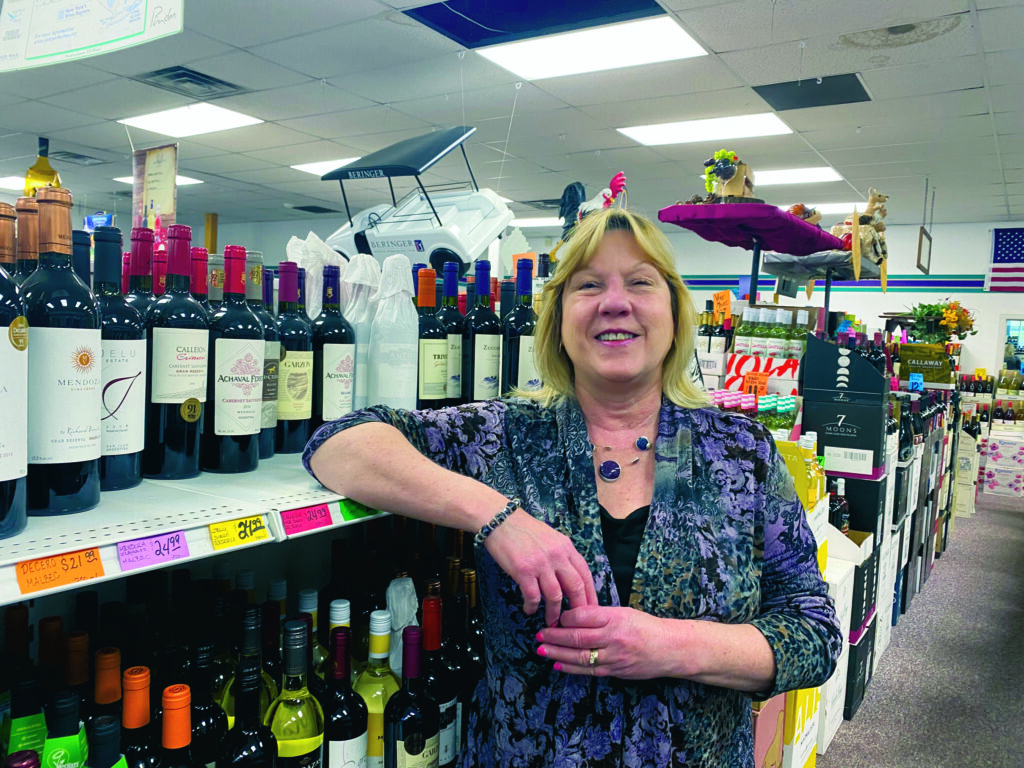
Local merchants work hard to deflect supply chain hiccups
By TED POTRIKUS • Special to www.AllOTSEGO.com
Reports abound nationally that we can’t find the products we want or need, the result of a catastrophic break in the world’s supply chain that moves goods from manufacturer to distributor to retailer to consumer.
Otsego County merchants who know their customers’ needs are finding ways to plug the gaps wherever possible. From groceries and adult beverages to hardware, appliances, and cars, business owners are rallying to keep merchandise on hand.
Shoppers gearing up for Thanksgiving dinner should have no problem finding the food they want to prepare for their traditional feasts.
“This is our 90th year of business,” said Mona Golub, vice president, Public Relations, Consumer and Marketing Service for Price Chopper. Price Chopper’s markets in Cooperstown and Oneonta will be well stocked heading into the holiday season.
“We know what our customers are coming in to buy year after year,” she said. “We order our turkeys one year out and we have plenty on hand. We ordered staples in the spring. We’ll have everything that people want — sweet potatoes, cranberry sauce, turkey, squash.”
“The story on the national level doesn’t always translate to the local markets,” she said. “We’ve built fantastic relationships with our suppliers so we can be sure we have what our customers expect.”
Local merchants cite pre-planning and hard work as good insulation against empty shelves.
“I’ve been doing this for 32 years,” said Sharon Wilsey, owner of Best Wine & Spirits in Oneonta. “We’re not immune from the supply chain problems, it’s happening everywhere. But we’re way ahead of this in so many ways.”
While she faces challenges when manufacturers run short on raw materials such as glass and aluminum, she has been able to keep popular brands in stock.
“For a long time, we’ve been one of the few places around where you can get popular items like Jim Beam flavored products,” she said. “We have a very good relationship with our distributors. We know what to suggest to our customers if we’re short on their favorites.”
John Thompson said he and Advantage Maytag co-owner John Elderkin pre-ordered more merchandise than their annual sales projection would otherwise have suggested. The Oneonta appliance store has stayed busy as a result.
“The pandemic kept more people at home, so they wanted and needed new appliances,” he said. “We’ve been able to fill those orders through good planning and good relationships with our suppliers. Our products come from Whirlpool, so around 90 percent of what we sell is made in America and isn’t getting jammed up at the ports.”
Advantage nonetheless faces a longer-than-usual wait for refrigerators and freezers.
“It’s higher tech with the computer chips that are tough to source,” Mr. Thompson said. “There’s a steel shortage, and the new ‘fridges take longer to manufacture.” He added that pending regulatory changes at the federal government level will change the composition of certain refrigerants, also slowing the process.
Knowing the local customer base arises as a common theme when addressing the supply chain crisis. Steve Munson of Munson True Value said his 56 years in the business keeps him ready for market hiccups.
“We’re good at knowing what we’re going to need,” he said. “Right now, we’re at about 95 percent of our usual inventory for everyday items. That has been a big improvement.”
“Windows, millwork, lumber — those are the things that seem to be getting worse,” he said. He cited challenges for manufactures — finding employees to make the products and sourcing the raw materials — as the primary culprits in the supply chain slowdown.
“It’s taking around three-and-a-half months for windows,” he said. “Don’t come in tomorrow and expect the windows the next day!”
And at Country Club Chevrolet, owner Tom Armao said his shop remains busy with customers for new and used cars.
“There are things I can’t control a lot of times,” he said. “But that means we change course and grow so that we can be here for our customers. We’ve got new cars on our lot and our used inventory is up. We can still fill the transportation needs that this area has. It takes hard work every day, but we know how to stay afloat.”

